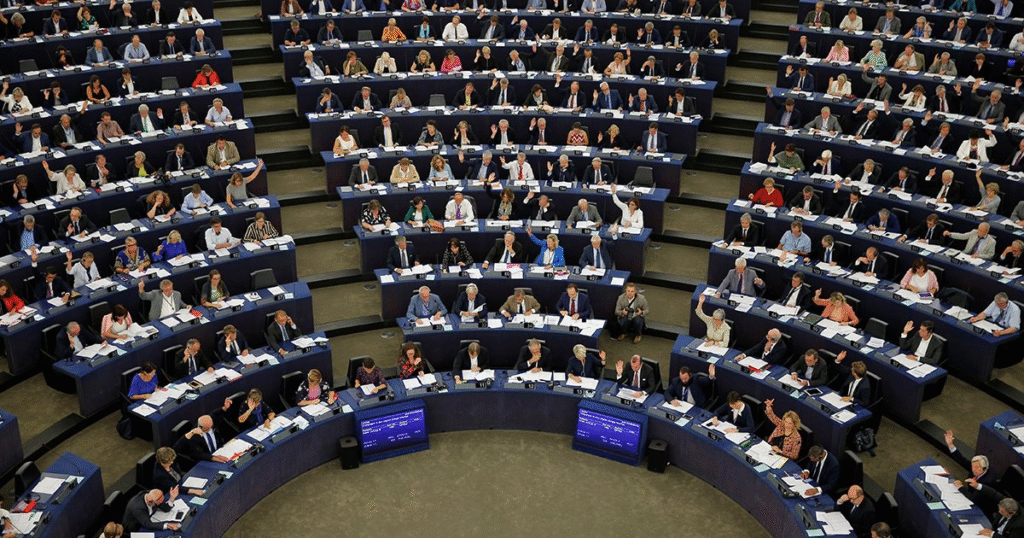Former U.S. President Donald Trump has reignited global trade tensions by proposing a 30% tariff on all foreign goods, drawing immediate backlash from key European Union (EU) nations. Leaders from Germany, France, and Spain have sharply criticized the move, warning it could destabilize transatlantic economic ties. French President Emmanuel Macron has urged the European Union to “defend European interests” against what he termed as “economic aggression.”
Macron’s Stand: EU Must Unite to Protect Its Trade Interests
French President Emmanuel Macron didn’t mince words. Speaking at a recent EU summit in Brussels, Macron called the tariff proposal a “direct threat” to the integrity of global trade and urged European unity in crafting a decisive response.
“We cannot sit idle while our industries and economies are targeted by protectionist measures,” Macron said. “Europe must stand strong and defend its interests.”
France has historically advocated for fair trade policies and multilateralism, and this proposed tariff — which Trump justifies as a move to “revive American manufacturing” — has struck a nerve in Paris.

Germany and Spain Join Chorus of Criticism
Germany, Europe’s largest economy and an export powerhouse, warned that the proposed 30% blanket tariff would violate international trade norms and harm U.S.-EU relations. A spokesperson from the German Ministry of Economic Affairs said such a move “risks starting a new trade war,” referencing past tariff battles during Trump’s presidency.
Spain’s Prime Minister also criticized the proposal, saying it reflected a “deep misunderstanding of global interdependence.” Spanish officials expressed concerns over sectors like agriculture and automotive, which are highly reliant on U.S. trade partnerships.
The unified pushback by Germany, France, and Spain suggests that the EU may consider retaliatory measures if the tariffs are implemented, potentially affecting American exports of tech, agricultural products, and consumer goods.

What Could This Mean for Global Trade?
The return of Trump-style protectionism could reshape global trade policies if he wins the 2024 U.S. presidential election. Analysts warn that a unilateral tariff imposition by the U.S. could:
- Trigger EU counter-tariffs, escalating costs for businesses on both sides
- Disrupt global supply chains, especially in the automobile and manufacturing sectors
- Weaken the role of the World Trade Organization (WTO) as a trade mediator
The proposed tariffs also cast doubt on the future of U.S.-EU trade cooperation, including stalled talks on a new transatlantic trade agreement.
Economic experts say that while such aggressive tariff measures might boost domestic manufacturing in the short term, they often lead to higher consumer prices and global market instability in the long run.
Conclusion: Europe Prepares for a Strategic Response
As Trump reintroduces the rhetoric of high tariffs, European leaders are preparing to safeguard their economies. The immediate reactions from France, Germany, and Spain suggest a clear shift in tone from diplomatic patience to firm resolve.
The coming weeks could see EU trade ministers drafting a united framework to either negotiate or retaliate—depending on how the situation unfolds in the U.S. political arena.
📢 What do you think? Will Trump’s proposed tariffs reignite a full-scale trade war? Share your thoughts in the comments and follow The Indian Chronicles for the latest updates on global economic developments.









